Confederate Truths: Documents of the Confederate & Neo-Confederate Tradition from 1787 to the Present.
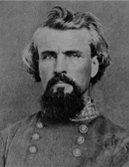

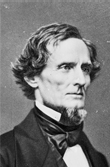
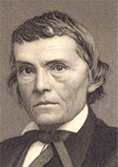

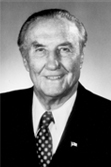
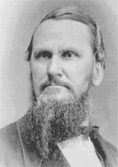
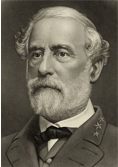
"Confederate Veteran" delights in civil rights being defied.
Confederate Veteran, Vol. 19 No. 4, April 1911, pp. 167-8. The Confederate Veteran was the official publication of the United Confederate Veterans, United Daughters of the Confederacy, Confederated Southern Memorial Association, and the Sons of Confederate Veterans. H.A. Herbert who is mentioned as helping out Cal Wagner defy civil rights legislation, later headed the effort to erect the Arlington Confederate Memorial in Washington, D.C.
HAPPY CAL WAGNER DEFIED "CIVIL RIGHTS."
MEMORABLE INCIDENT OF 1875 AT MONTGOMERY.
When the noted Sumner civil rights bill was passed by Congress soon after the Civil War, every one of that time remembers the effect it had on good old Alabama, which had been cursed and scourged by ignorant members of her legislature, which was composed of negroes and carpet-baggers.
On March 11, 1875, Wagner's Minstrels appeared in Montgomery. The negroes, backed up by this obnoxious bill, tried to exercise what they claimed were "their rights" by taking seats in theaters and trains alongside the whites. On this occasion they passed the word that they would buy seats in the theater with the whites, when heretofore they had always been excluded to the gallery. Wagner's agent had instructions not to sell tickets to negroes anywhere but for the gallery, but by some chicanery they got tickets in the dress circle among Montgomery's fairest daughters. The question then was how to remove them without frightening the ladies. When the curtain went up, the company marched in and took their seats for the overture, Wagner sitting on the end with tambourine in hand. Casting his eyes over the audience, he saw the negroes in the dress circle, and knew at once this would never do; so he put down his tambourine, advanced to the footlights, and announced that there were negroes in the dress circle and they would please vacate and go to the gallery, where they would find good seats, and the performance would commence. Well, you could have heard a pin fall; Southern men stood with bated breath ready to back Wagner. The negroes did not move. A game of bluff, but it did not count in that game. Wagner waited patiently; still the negroes made no move to vacate. Wagner left the stage and returned quickly with pistols in hand, saying to the whites: "Ladies and gentlemen, stand aside; I will clear the dress circle of those colored gents." Pandemonium reigned; men were on their feet instantly, and the negroes went out of that dress circle, kicked and cuffed, and made a hasty retreat to the street. The performance then commenced, and much praise was given "Happy Cal."
Next day trouble commenced for Wagner, as negroes commenced swearing out warrants for Wagner before the United States Commissioner. N. S. McAfee, of Talladega, was United States District Attorney and Capt. J. W. Dimmick was United States Commissioner. Wagner and his agent, Brown, were ably defended by Col. H. A. Herbert, Col. Tucker Sayre, Col. Virgil Murphy, judge David Clopton, all volunteering their services, and Colonel Herbert making a telling speech on the unconstitutionality of the civil rights bill. The commissioner held with the attorney, and refused to issue any more warrants. Then the negroes swore out more warrants before another commissioner, Barber by name. This threw Montgomery into a state of excitement. Men with stern faces and determination promised to back Wagner and see this thing through; the streets were crowded with both negroes and whites, expecting trouble any moment. Cal Wagner was in Col. Tucker Sayre's office, which was over Blount Weatherly's drug store, facing Court Square. He was surrounded by his friends, who were considering how to get him out of the city before the United States marshals could serve other warrants on him. Dr. Walter Jackson, who was in the drug store at the time, was called into the office to consult with them. His buggy and fast horse were standing in front of the drug store. When asked if he could not get Wagner out of the city quick, he replied: "Yes, I can get him away with lightning speed."
"Well, what is your plan?"
He replied: "Wagner, you walk down the steps and get into my buggy and drive to the corner of Lee and Montgomery Streets. I will walk up there and get in and take you over to Cad Beale, and he will run you out of town on an engine."
Cad Beale was then master mechanic of the south and north division of the L. & N. at Montgomery.
Sayre said: "Tell Cad to get him out quick."
The negroes tried to flank Dr. Jackson's movements, though with a fast horse he dodged them, skirted the city, and made the shops in the northern part, where Cad was, and the story was quickly told to him. No sooner said than he was to the rescue. One of his switch engines was standing there, and he said: "Jump up, quick, Mr. Wagner." Beale sprang to the throttle and was gone with Wagner, leaving Dr. Jackson on the ground in consternation.
Beale took Wagner across the Alabama River, which is five miles north of Montgomery, and left him with the bridge keeper, Smith. He then returned to Montgomery to get the company and baggage. The baggage was, piled at the old depot of the Montgomery and West Point Railroad, on North Court Street. He took a box car and loaded the baggage, and while doing so the negroes asked him what he was going to do with it. He replied that the streets were so muddy they could not haul it; so he was going to take it across the commons to the foot of Commerce Street, where they would unload, as they were going to perform in the city that night. In the meantime he had sent a messenger to Mr. Marsden, Wagner's manager, and the attorneys to have the band and company parade and march down Commerce Street, where he would be with coach, baggage car, and engine, and for the company to enter the coach, and at a given signal he would run away with them, which was most successfully accomplished, leaving a gang of negroes gaping at the dare-devil act.
Before leaving the city limits with the train another obstacle presented itself. One of the company crawled over the box car and told Beale that an officer was in the coach. But Beale was ready for the emergency. He stopped his engine, walked back to the coach, and said to Marsden: "Count your men. This is a chartered train, and no one allowed except this company." In counting them Marsden came to a deputy United States marshal by the name of Williford, who was looking for Wagner, and said this man did not belong to the company; so Beale told Williford he would have to get off. He refused to do so, and Beale called two of his assistants in yard service under him, Dennis O'Connor and William Bennett, and ordered them to take Williford off, but not to hurt him. The latter exposed his pistols, but Bennett and O'Connor laughed at him, and said: "Partner, come, get off without any trouble, as you might get hurt if you raise those coat tails too high; some one might kick them off." Ike was ejected from the train, at the same time notifying Beale that he would attend to him when he returned to Montgomery, and Beale laughingly told him that he "would dine there to-morrow." It was then between 5 and 6 P.M.
Away sped Beale with the minstrels, picking up Wagner at the bridge. Stopping at Elmore, he had the train dispatcher at Birmingham wired to close all telegraph offices on the line and to give him a clear track to Decatur.
Not knowing the road, he was flying with the engine in darkness, downhill and around curves, all the time looking for Sand Mountain, which was a very steep grade with, the fall toward Decatur, when, Wagner, who was riding in the cab with him, sitting on the opposite side, came over to him, saying: "Mr. Beale, let me ride on your side a while, as my side is running much faster than yours."
This run was made in the dark with a locomotive with 15-inch cylinders and 4½ foot drivers, and the one hundred and eighty-six miles were made in five hours and forty-five minutes, and water was taken at water tanks between stations.
This run and race is often spoken of in Alabama as the "Wagner Race for Civil Rights." Wagner has since left the minstrels. He is still living, and is an assistant passenger agent of the Northern Pacific in the Far West. Capt. J. W. Dimmick, Dr. Walter Jackson, and C. H. Beak still reside in Montgomery, and Col. H. A. Herbert, ex-Secretary of the Navy, resides in Washington; while Clopton, Sayre, and Murphy have passed over the river.